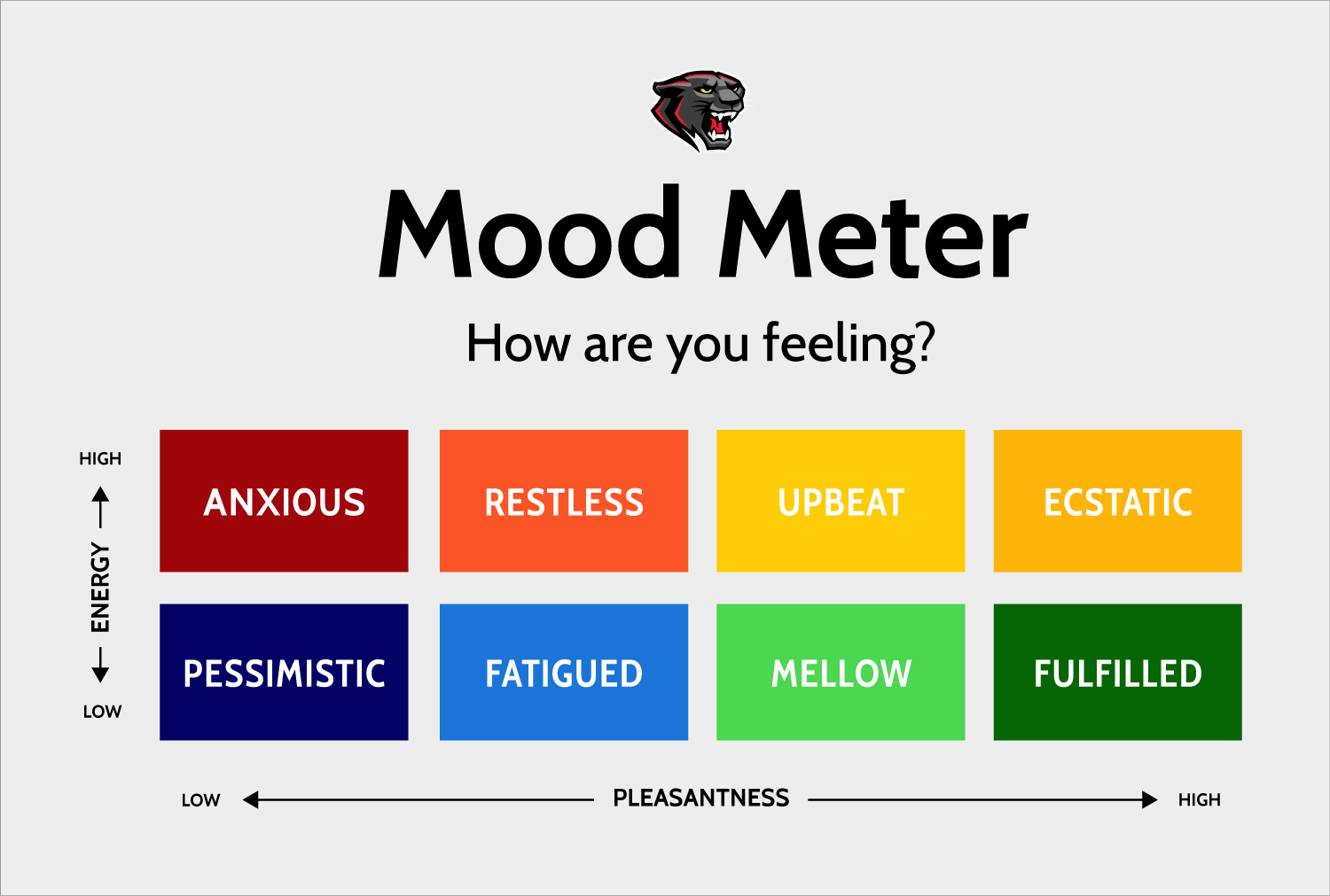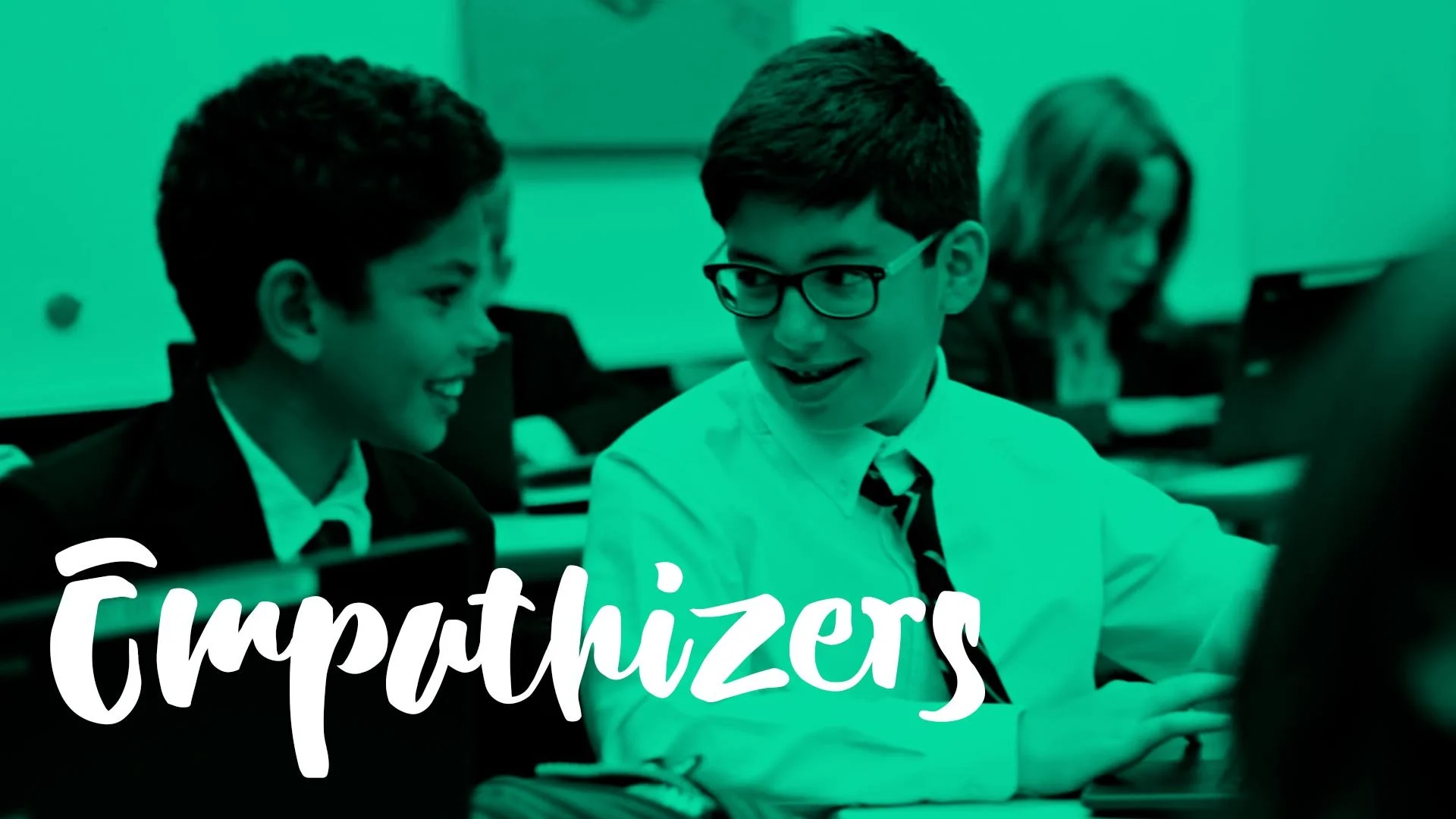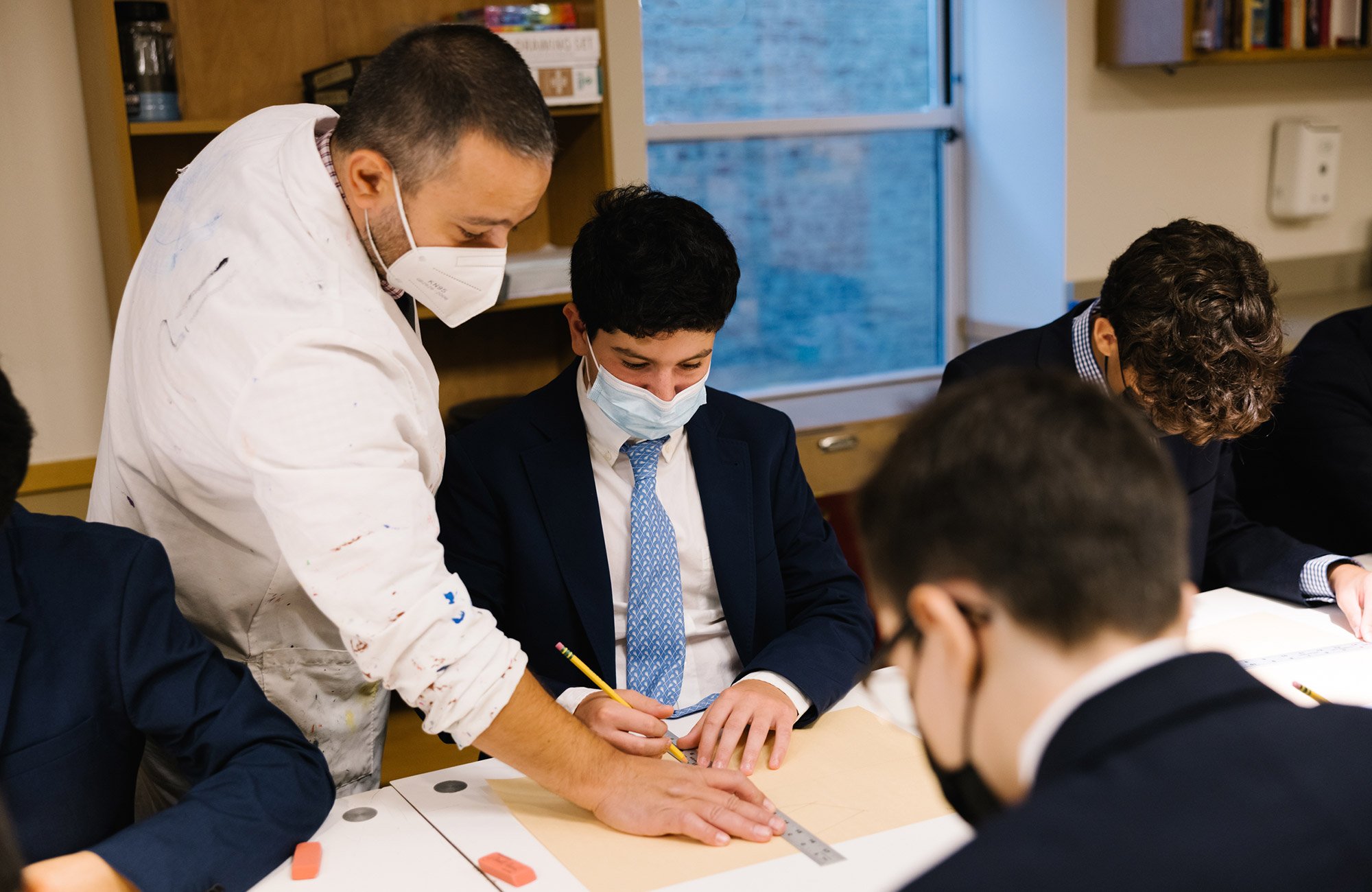The Joy of Learning
Helping boys become healthy men who live lives of purpose.
Defined as a feeling of delight, joy has not always been easy to find during these years of tumult. At Browning, however, we continue to cultivate the joy of learning—caring as much about what is in our boys’ hearts as in their minds. Read on to learn how we encourage them to achieve academic success while pursuing passions, deepening relationships, and finding purpose.
Relationships are at the core of Browning’s educational philosophy. Our social-emotional learning (SEL) program provides a structure around which boys in Grades 5-12 develop deeper awareness of themselves and their relationships with others. The outcome of the multifaceted approach helps our students foster perseverance and empathy as well as improve their decision-making, transforming them into thoughtful community members and citizens that contribute positively to the classroom environment.
After a year of COVID restrictions, where classes were divided into small pod groups and siloed on laptops, it became apparent that having unstructured time to discuss emotions and relate in socially appropriate ways with each other was key to moving forward.
“Unstructured time outside of academic classes allowed us as educators to build those relationships while enabling the boys to engage with each other in healthy ways,” Anna LaSala-Goettler, Grade 9 Coordinator, says. “We have built more time into the program this year for advisors to be with their advisees. Our advisory program is centering around Browning’s core values of honesty, curiosity, dignity, and purpose.”
Learning goes beyond academics. Mood Meters, which are displayed in every classroom, provide a visual toolset for boys to express their feelings and be empathetic towards others.
As boys enter the Upper School, they will experience a significant shift in academic and cultural expectations. Incoming freshmen are placed in advisory groups with members of their own class which allows them to develop a class identity and form bonds.
“We wanted these boys to feel supported by students in their own grade experiencing the same thing, rather than immediately mixing with the upperclassmen,” Ms. LaSala-Goettler says, “We also partner with the boys and their families to facilitate the transition to Grade 9.”
Healthy masculinity is also fostered through a suite of courses designed to expand our boys’ self-reflection and empathy. The classes tackle the idea of the “man box” by critically examining the role that culture plays in the lived experience of the various masculine stereotypes they may believe.
“Our Modern Masculinities courses have boys consider why vulnerability is important and the pressures that men face around emotional stoicism, while challenging that central narrative and giving them the space to be in conversation with each other about emotions,” Sam Permutt, Dean of Upper School Life, says. “Reflecting upon their own individual story of masculinity allows our boys to use that self-knowledge to support their development of their sense of purpose.”
Watch the video >> Our character education program teaches our boys how to be actively empathetic and compassionate in how they connect with others.
Browning boys also develop a number of social-emotional learning competencies through meaningful participation and leadership opportunities.
“In the Middle School, the Student Council is organized by grade level, composed of volunteers who submit written statements that affirm Browning’s core values,” Megan Ryan, Dean of Middle School Student Life, says. “Each grade works on a specific set of projects for the whole of the division and also coordinates activities that foster individual class pride.”
Upperclassmen’s sense of identity and self are also honed as they prepare for a transition to college. In Grade 12, students can apply to become Peer Leaders, where they help Grade 9 students acclimate to the Upper School by meeting them regularly and providing them guidance.
“Seeing how intently the seniors pay attention to the experiences of the freshmen, as well as the seniors’ willingness to model and share their own experiences in response to conversations about equity and identity is a blessing,” Mr. Permutt says.
Watch the video >> Our boys’ leadership skills are honed through the relationships that Browning fosters.
Navigation through the high school years also comes from the strong relationships boys have with their faculty advisors. In Grade 10, students are placed into mixed-grade advisories where they can express their preference about who their faculty advisor will be, which helps ensure they are matched with an adult with whom they feel connected.
“If what we’re going for are close relationships, then empowering the students to have some say as to which advisor they want to be in a relationship with is important,” Mr. Permutt says. “Inspired by that, the advisors are constantly working with students to be in meaningful relationships with themselves, with each other, and with their teachers."
The close bonds between boys and their teachers in turn shapes the advisory programming with conversations and activities that the boys are curious about and excited by.
“That they feel safe in conversation with each other and with themselves is key to all parts of community-building across the range of activities and events that we have here,” Ms. LaSala-Goettler says.
Social-emotional learning is incorporated into the framework of all grade levels through the Panthers’ Purpose program, designed to help our boys see how the philosophy applies to real life. By the time a boy graduates, they will be disciplined and critical thinkers, thoughtful and courageous friends, and men who seek to use their academic achievements to influence others for the better.
“Our school does not pretend to be value-neutral on the qualities that we believe empower boys to lead flourishing and fulfilling lives,” Dr. John Botti, Head of School, says. “But helping them develop these qualities also requires thoughtful curriculum, teaching, and conversation, so that our community can be intentional about the messages it shares. We must be sure to give our boys time and space to reflect critically on those messages, as well as on their own sense of values and ethical identity.”
Expected Panthers' Purpose Competencies
Lower School boys engage in learning purpose competencies through morning meetings, classroom discussions, and frequent exposure to social-emotional learning goals throughout their days.
The management of emotions involves a boy demonstrating self-control with prompting from his teacher.
To gain an understanding of healthy relationships, boys must develop the skill of acting as an upstander in crucial moments.
As boys get older, they should retain their previous purpose competencies while also being introduced to new ones that are more appropriate to their developmental age.
Middle School: Nonjudgmental listening could be used to emphasize the importance of empathy in maintaining relationships.
Upper School: The qualities of successful leadership could be identified, thereby modeling opportunities for boys to lead and follow accordingly, as well as discuss what role collaboration and decision-making form in creating healthy cultures and communities.
While Browning’s institutional foundation is grounded in nurturing boys’ intellectual engagement and academic achievement, the commitments of Panthers’ Purpose allow our boys to have a firmer grasp of the skills and dispositions they should acquire to make a difference in our world.
“While some may believe that these habits are acquired over time, through students’ careful study and modeling of the appropriate adult behavior, we know that these dispositions can be taught in a systematic way, making the implicit explicit, much as we are doing with our competency-based learning model,” Dr. Botti says.
These skills and dispositions come in many forms, including:
Habits that speed learning, such as enhanced self-regulation, habits of deep listening, and curiosity about others’ stories and patterns.
Improved emotional, relational, and ethical literacy that emphasizes the place of empathy, honesty, and respect in substantive and interpersonal knowledge alike.
Leadership and collaborative skills that emerge from community engagement projects both within and beyond Browning.
Much of this programming already exists at Browning, such as the leadership skills that are taught to our upperclassmen or our social impact programs that help communities in need while helping our students understand how that need came to be.
“The choice between academic pursuit and character development is a false one; indeed, the two are deeply intertwined, and both are fundamental to a rigorous and values-driven school that promises to develop men of intellect and integrity,” Dr. Botti says. “When we are intentional in our effort to help all of our Panthers to become young men of purpose, our community is marked by excellence, fulfillment, accomplishment, awareness, challenge, and wholeness in equal measure. When we complement our intellectual aspirations with Panthers’ Purpose, we are at our best.”










